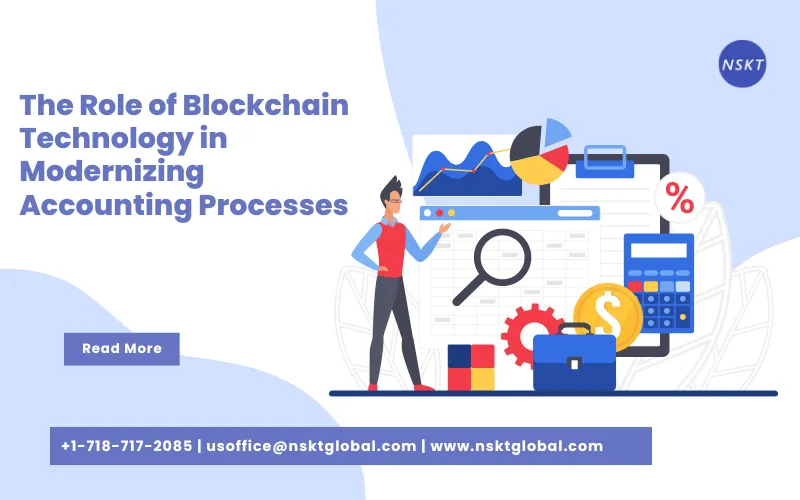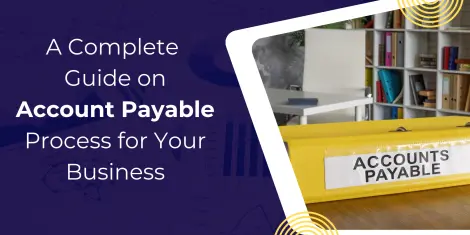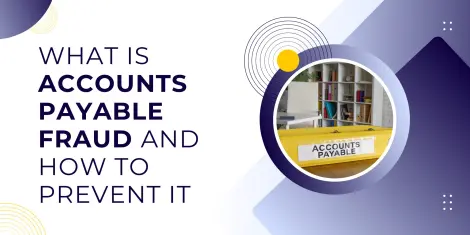Table of Contents
As technology continues to evolve, the accounting industry is not left behind. Accounting is the process of recording financial transactions, summarizing them, and presenting them in financial statements. It helps businesses make informed decisions by providing them with financial information. It is an essential part of any business, and it is crucial to get it right. In this article, we will explore how blockchain technology can revolutionize accounting processes.
What is Accounting?
Accounting is the process of recording financial transactions, summarizing them, and presenting them in financial statements. It is an essential function of any business, and it helps businesses track their financial performance. Accounting involves tracking financial transactions such as sales, purchases, expenses, and payments. The information is then used to prepare financial statements that show the financial position, performance, and cash flows of the business.
Traditional accounting processes involve a lot of paperwork, manual data entry, and reconciliation. This process is time-consuming, prone to errors, and can be expensive. However, with the emergence of blockchain technology, accounting processes can be modernized, making them more efficient and secure.
The Challenges of Traditional Accounting
Traditional accounting processes are time-consuming and prone to errors. The process involves a lot of manual data entry, which can be tedious and can lead to errors. Additionally, the reconciliation process can be challenging and can take a lot of time, leading to delays in financial reporting. The traditional accounting process is also vulnerable to fraud, as it is easy to manipulate data and cover up fraudulent activities.
How Blockchain Technology Can Revolutionize Accounting
Blockchain technology has emerged as a game-changer in modernizing accounting processes. Blockchain is essentially a digital ledger that stores information in a decentralized format, making it impossible to alter or manipulate data. This means that accounting professionals can use it to track financial transactions and streamline their processes, resulting in reduced costs and increased efficiency.
With blockchain technology, financial transactions are recorded in a secure and transparent manner. The ledger is maintained by a network of nodes, and each node has a copy of the ledger. This makes it impossible to manipulate the data, as all nodes must agree on any changes made to the ledger. Additionally, blockchain technology eliminates the need for intermediaries, such as banks or other financial institutions, as transactions can be directly recorded on the blockchain.
Blockchain-Based Accounting Systems
Blockchain-based accounting systems are the future of accounting. These systems are designed to improve the efficiency and security of accounting processes. Blockchain-based accounting systems use a decentralized ledger to record financial transactions. The ledger is maintained by a network of nodes, and each node has a copy of the ledger. This makes it impossible to manipulate the data, as all nodes must agree on any changes made to the ledger.
Blockchain-based accounting systems also eliminate the need for intermediaries, such as banks or other financial institutions. Transactions can be directly recorded on the blockchain, reducing transaction costs and increasing transparency. Additionally, blockchain-based accounting systems can automate many accounting processes, reducing the need for manual data entry and reconciliation.
Advantages of Blockchain-Based Accounting
Blockchain-based accounting systems offer several advantages over traditional accounting systems. First, they provide a secure and transparent way of recording financial transactions. The ledger is maintained by a network of nodes, and all nodes must agree on any changes made to the ledger. This makes it impossible to manipulate the data, reducing the risk of fraud and errors.
Second, blockchain-based accounting systems offer increased efficiency and reduced costs. The automation of accounting processes reduces the need for manual data entry and reconciliation, reducing the time and cost associated with these processes. Additionally, the elimination of intermediaries reduces transaction costs, making it cheaper to transfer funds.
Third, blockchain-based accounting systems offer increased transparency and accountability. All financial transactions are recorded on the blockchain, making it easy to track the flow of funds. This increases transparency and accountability, making it easier to detect and prevent fraudulent activities.
Real-World Examples of Blockchain-Based Accounting
Several companies have already adopted blockchain-based accounting systems. For example, Walmart has implemented a blockchain-based system that tracks the supply chain of its products. This system allows Walmart to track the movement of products from the supplier to the store, ensuring that all products are genuine and of high quality.
Another example is the Australian Securities Exchange (ASX), which is currently working on implementing a blockchain-based clearing and settlement system. This system will replace the current system, which is based on manual processes and is prone to errors.
Implementation of Blockchain Technology in Accounting
Implementing blockchain technology in accounting requires careful planning and consideration. There are several challenges that need to be addressed, such as the cost of implementation, the complexity of the technology, and the need for new regulatory frameworks.
Additionally, accounting professionals need to be trained on how to use blockchain technology effectively. This may require additional training and resources, which can be expensive.
Challenges to Implementing Blockchain Technology in Accounting
One of the biggest challenges to implementing blockchain technology in accounting is the need for new regulatory frameworks. Blockchain technology is relatively new, and there are currently no clear regulations governing its use in accounting.
Another challenge is the complexity of the technology. Blockchain technology is complex and requires specialized knowledge to implement and maintain. This can be a barrier to adoption, as many accounting professionals may not have the necessary skills to use the technology effectively.
Finally, the cost of implementation can be a barrier to adoption. Implementing blockchain technology requires significant investment in hardware, software, and training. This can be expensive, especially for small and medium-sized businesses.
Future of Blockchain Technology in Accounting
The future of blockchain technology in accounting is bright. With its ability to provide a secure, transparent, and efficient way of recording financial transactions, blockchain technology is poised to revolutionize the accounting industry.
As blockchain technology becomes more widely adopted, we can expect to see increased efficiency, reduced costs, and increased transparency in accounting processes. Additionally, blockchain technology may enable new business models that were previously not possible.
Conclusion
Blockchain technology has emerged as a game-changer in modernizing accounting processes. It offers a secure and efficient way of recording financial transactions, reducing the risk of fraud and errors while increasing transparency and accountability. With its ability to provide a secure, transparent, and efficient way of recording financial transactions, blockchain technology is poised to revolutionize the accounting industry. Although there are challenges that need to be addressed, the future of blockchain technology in accounting is bright.







